Tube strike: Services resume ahead of talks
- Published
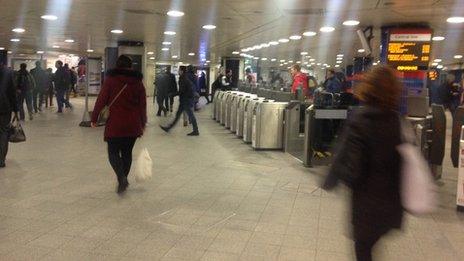
Commuters at Oxford Circus station were returning to their normal routes on Friday
Tube services are returning to normal after a 48-hour strike over planned job cuts and ticket office closures caused chaos for London commuters.
Talks will be held later between London Underground bosses and the RMT and TSSA unions, in a bid to avert a second strike.
Transport for London has said the proposals, which would lead to 960 job losses, would save £50m a year.
Millions were affected by the strike, which ended at 21:00 GMT on Thursday.
As it ended, London Underground (LU) said up to 190 of 270 stations were open but a full service could not resume immediately because of shift patterns.
It was every man for themselves for a while in Shepherd's Bush
Transport for London claimed up to 75% of stations remained open during the strike and up to 45% of regular Tube users still made their journeys on the Tube. It also said more than 90% of regular Oyster customers travelled.
Further industrial action, external is planned for between 09:30 and 11:30 and 18:30 to 20:30, when the unions are asking members to leave ticket barriers open.
They are also urging members not to issue penalty fares.
LU's chief operating officer Phil Hufton said the company was "not obliged to pay employees in full if they refuse to carry out their full range of contractual duties".
A second two-day walk out is planned to begin next Tuesday evening, if talks between both sides are unsuccessful.
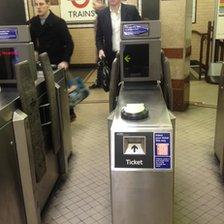
Ticket barriers at stations were left open in further industrial action
'Baloney from Boris'
Ahead of the talks, which will be chaired by the conciliation service Acas, the Mayor of London Boris Johnson told BBC London 94.9, external, there was "wiggle room".
He said unions had shown a "failure to engage" in talks, adding: "Rather than hurting hard-working Londoners and hard-pressed small businesses they should have been talking to TfL this week."
RMT leader Bob Crow said, external it was the first he had heard of "wiggle room", adding: "My negotiators have been told for the last five weeks there is none."
"Our negotiators are geared up and ready to enter the exploratory talks," Mr Crow said.
TSSA leader Manuel Cortes said: "We want no more stunts or PR baloney from Boris. We want serious and detailed talks on our genuine fears for the safety and security of passengers and staff under these far-reaching plans."
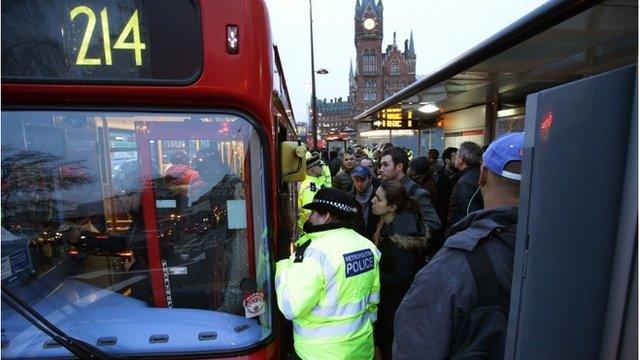
Passengers struggled to get on overcrowded buses as they tried to avoid the Tube
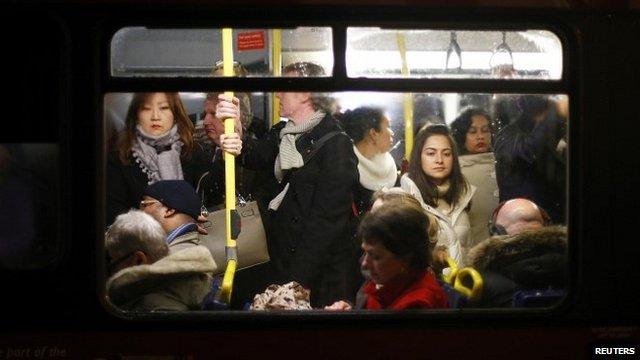
Many faced packed trains on their way home during the evening rush hour on Thursday
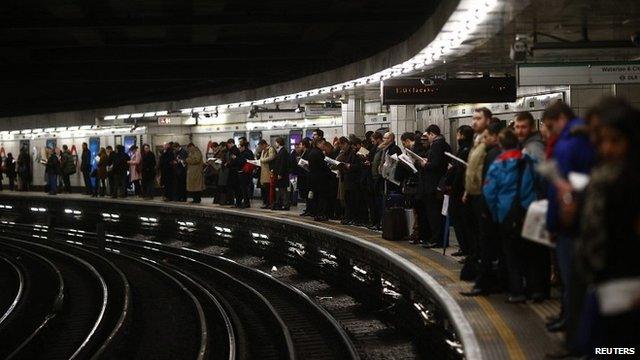
There were large queues for the trains that were running
Val Shawcross, Labour's transport spokeswoman on the London Assembly, has urged the mayor to launch a full public consultation on the plans, which Mr Johnson says will not lead to compulsory redundancies.
She said: "There are some interesting ideas in TfL's plans and modernisation is needed, but Londoners should be given the chance to have their say and improve them.
"No-one has a monopoly on good ideas and Boris should be willing to listen to what the public have to say. The unions have raised legitimate concerns over passenger safety and how more vulnerable Tube users will be affected by the changes."
The government has said it is considering plans to declare London Underground an essential service, like the police, in order to curb the threat of future strikes.
- Published6 February 2014
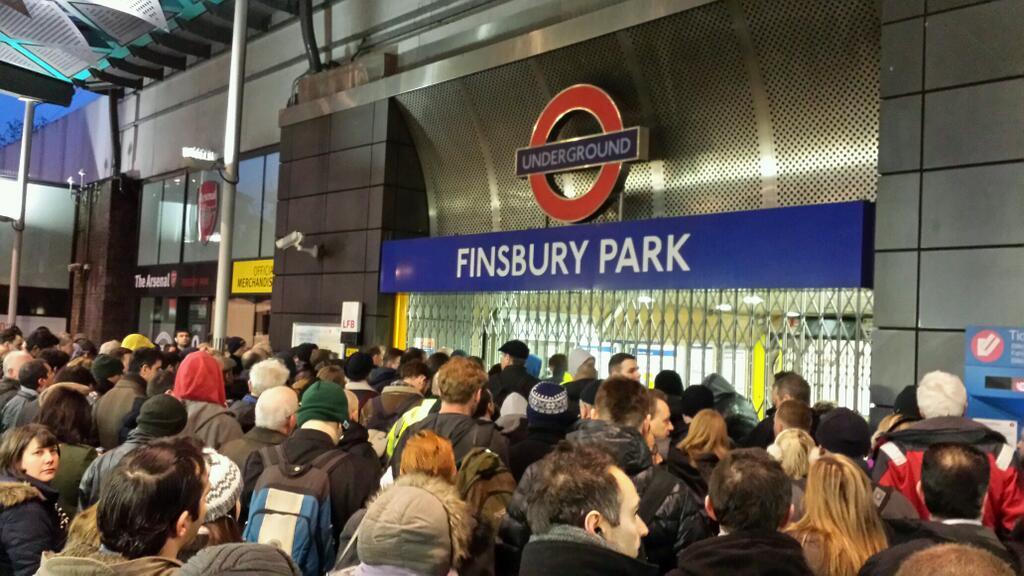
- Published6 February 2014
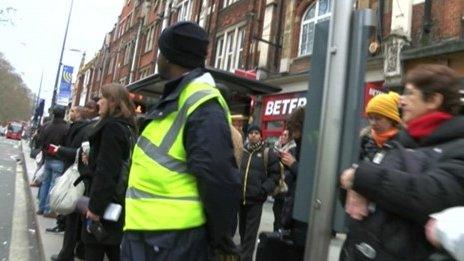
- Published6 February 2014
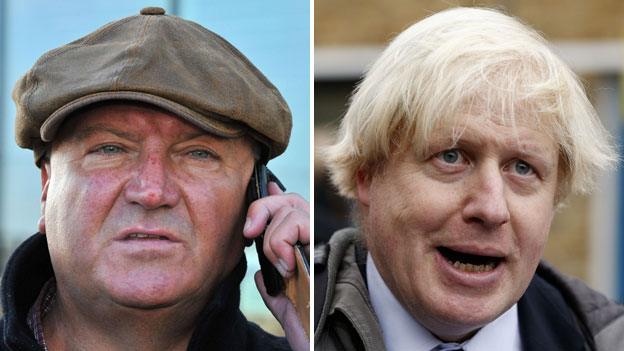
- Published5 February 2014
- Published5 February 2014
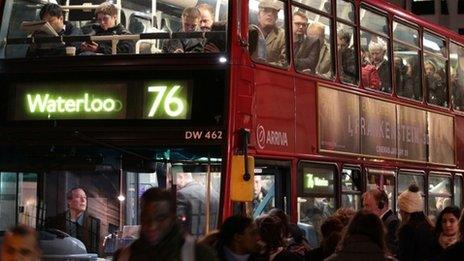
- Published5 February 2014
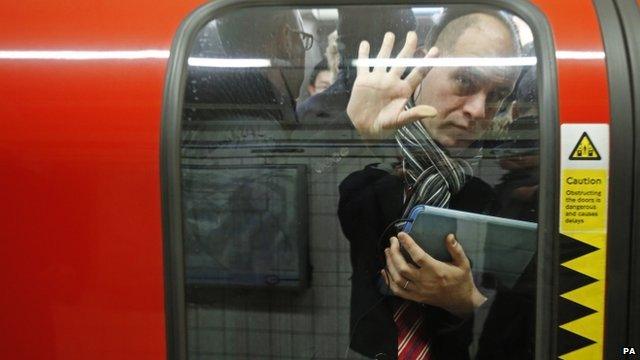
- Published6 February 2014
- Published28 April 2014
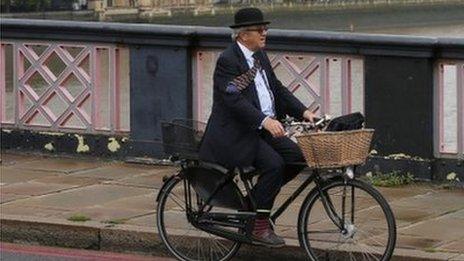
- Published4 February 2014
- Published5 February 2014
- Published5 February 2014